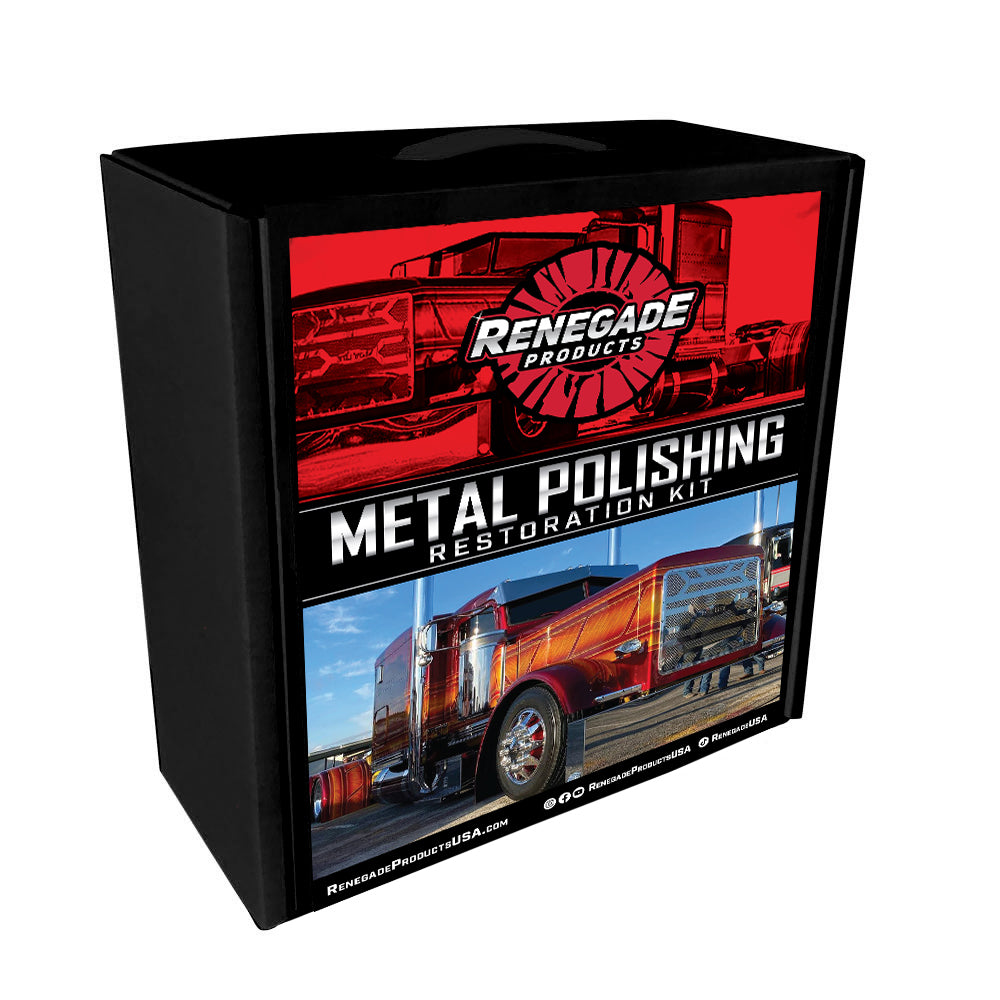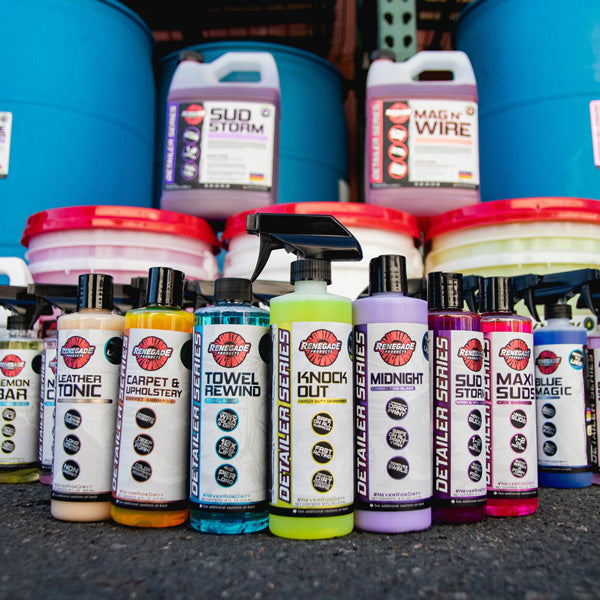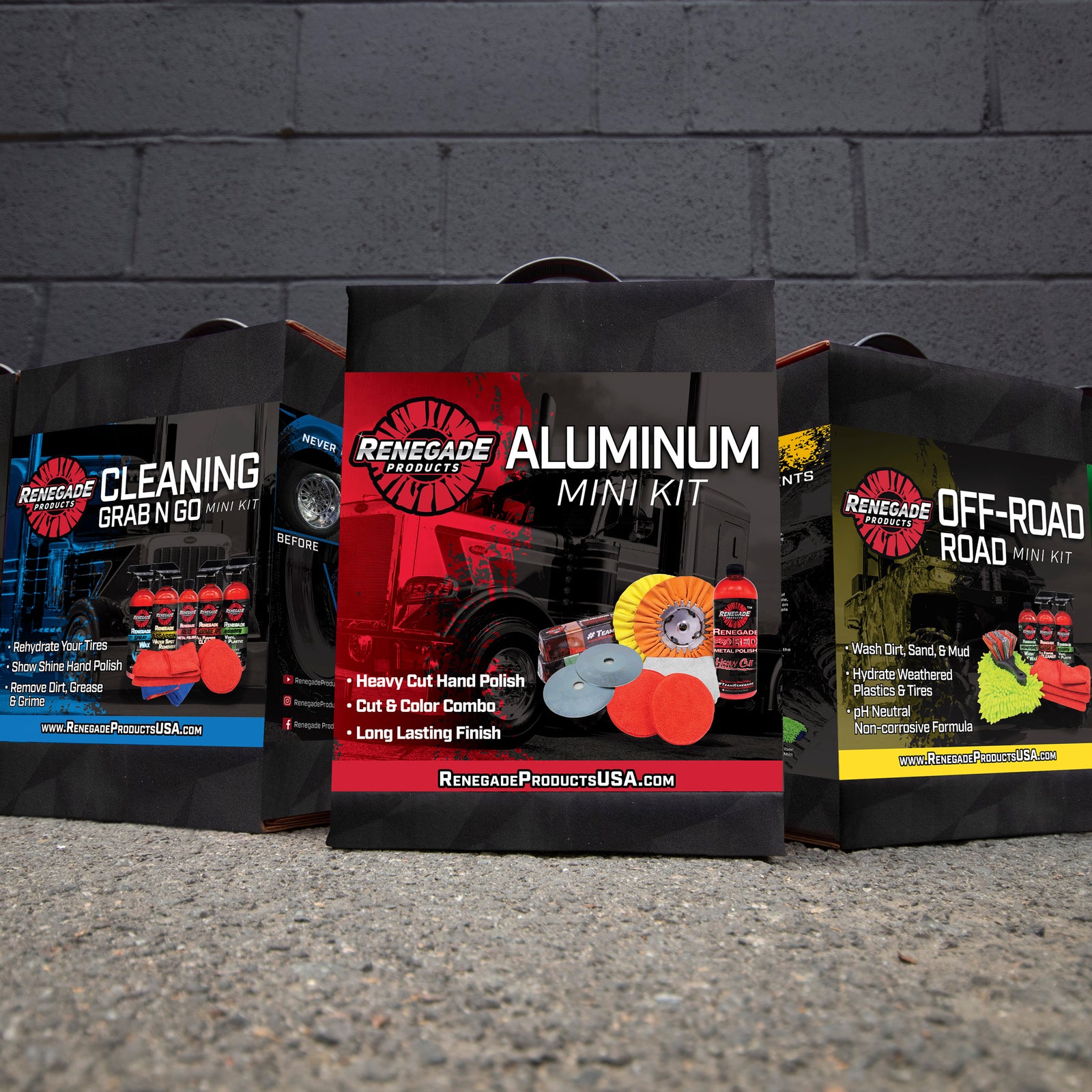HOW DO YOU POLISH STAINLESS STEEL?
Stainless steel is the most difficult metal to polishing because of the inherent challenges in its structure. Unlike aluminum, stainless steel is NOT a porous metal and is generally much thicker and denser than aluminum parts. Due to this fact, the true struggle lies in heat generation and your ability to move and melt the surface of the stainless steel surface. Remember, essentially what we are doing is slightly melting the outermost layer of the steel and polishing using a combination of heat and our buffing pad and compound bar.
While polishing can sometimes be a difficult thing to explain in words, we will do our best over the coming article to break down how to polishing stainless steel using our easy to use stainless steel polishing kitwe developed to be an easy systematized way to get a mirror shine in MOST cases.
Here is a fantastic video on how to polish stainless steel:
WHAT POLISHING MACHINE DO YOU NEED TO POLISH STAINLESS STEEL?
The best buffer machine for polishing stainless steel is a fixed speed 6,000 RPM Makita GA7021 which is typically used by professionals or people with some experience.
The best buffing machine for polishing stainless steel if you are a beginner or still trying to improve your skill is bar far the Makita 9237C. This polishing machine is a variable speed 3,500 RPM polisher that is perfect for use with our stainless polishing mini kit if you are just starting out.
Below is a table showing the maximum safe operating speed for each size of buffing wheel:

OTHER POLISHING EQUIPMENT YOU WILL NEED TO POLISH STAINLESS STEEL
Random Orbital Sander - When pitting, oxidation and scratches exit on the stainless steel, sanding is an absolute necessity and the Makita Random Orbital Sander is the choice of metal polishing professionals. This 5" orbital sander should be combined with our premium 5" hook & loop discs found here
Buffing Rake - Buffing rakes are used in metal polishing to rake out any clumped up polishing compound and metal particles that get stuck to the buffing wheel. This is a necessity!
SAFETY EQUIPMENT NEEDED FOR POLISHING
1. Full Face Respirator - Don't skimp on these, you don't want metal dust and polishing products in your lungs! This is the best respirator for metal polishing.
2. Safety Flanges - While there are two types, exterior flanges and insertable flanges, if you are just starting out get yourself the cost effective exterior flanges. You CANNOT and should not polish without this!
3. Tape - Masking tape is an absolute necessity when high speed polishing. This protects YOU from damaging paint that exists around the areas where you are polishing.
How to know when you need to sand stainless steel before metal polishing?
While it is hard to say for certain in all cases without seeing the workpiece ourselves, we have a few good rules of thumb when considering whether you need to sand stainless steel or not before polishing it. Metal polishing of any kind will NOT get out out deep scratches or pitting, this will always need to be sanded. That being said, minor surface scratches CAN be buffed out with precise polishing technique that involves four passes in multiple polishing angle's holding the buffer. This is a more advanced process however.
A good rule for thumb when sanding stainless is that you should always start with a patch test to see if the least aggressive grit possible will get rid of your scratches. We typically recommend a 400 grit to start as this is generally aggressive enough to get out most scratches and still will be able to be polished out using our red airway and black magic compound. If you need to go further then try the 320 grit and see if that will get out your scratches and pitting. If the 320 works, follow this then go to your 400 grit and start your polishing process. So on and so forth.
WHAT POLISHING WHEELS GO WITH WHAT BARS WHEN POLISHING STAINLESS?
For stainless steel polishing we have two main stages for metal polishing. When polishing stainless steel, the name of the game is heat generation! Our buffing wheels and polishing compounds are designed to be more aggressive to properly heat and polish the surface. We have an easy two-step system for stainless polishing. Easy to use stainless polishing mini kit can be found here.
-
Cut Stage - For the first step polishing stainless we recommend our red airway buffing wheel with our black magic polishing bar. What makes this the right combination for the "cut" stage of polishing is that this red wheel is whats called a "Red Mill Treat" which is a stiffer, more aggressive treatment that helps the wheel generate more heat and friction to allow that stainless steel to heat up and melt. Our black Magic polishing bar is a heavy cut bar designed specifically for cutting through stainless and leaving a nice shine.
-
Color stage - For the second and last step of polishing stainless steel we recommend our pink airway buffing wheel with our yellow deluxe compound bar. Our Pink
POLISHING TECHNIQUE TIPS FOR POLISHING STAINLESS STEEL
1. As with polishing aluminum, be sure to not load TOO MUCH compound onto your buffing wheels. You want to turn the machine on so the buff is spinning, then drag the bar along the edge of wheel for about 1 second. People often think you need to hold the bar up to the buff for 4 or 5 seconds, this is not necessary and will in fact cause more harm to your polish than good!
2. Keep TIGHT polishing lines when polishing. As you are polishing from side to side and continuously drop down to a lower point, be sure to stick as close to your previous line as possible! People often complain about white lines after they have finished polishing and this is often because of missed spots in your CUT stage!
3. You do not always need to sand! Sanding is something you want to do if you are looking for absolute perfection or you need to get out deep scratches and pitting in the stainless!




